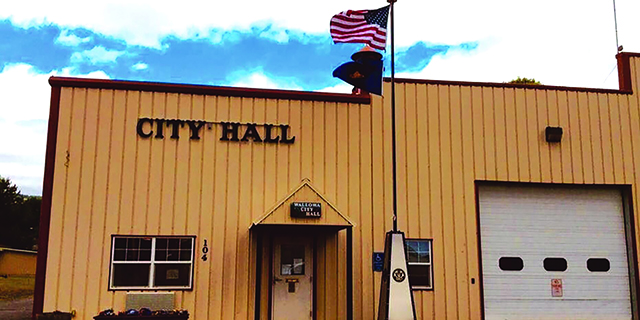Former Chieftain editor Gwen Coffin spoke truth to power
Published 6:39 am Wednesday, March 1, 2017
Historians on Feb. 19 marked the 75th anniversary of President Franklin D. Roosevelt’s internment of Japanese-American citizens during World War II. The military then defined the entire West Coast, home to the majority of Americans of Japanese ancestry or citizenship, as a military area.
Gwen Coffin, then editor of the Wallowa County Chieftain, rose to challenge President Roosevelt. From his far outpost in Wallowa County Coffin spoke to remind people of who we are and why we were fighting.
Trending
Here is what Coffin wrote on April 8, 1943. “Much of the resentment on the West Coast toward the Japanese was not the outgrowth of the war but arose during peacetime as the Japanese achieved some success and prominence in their pursuit of agriculture and trade. Many employers preferred to see the Japanese remain in the ranks of the low paid wage earners. Others were resentful at the sight of Japanese prospering….
“It is foreign to our conceptions of democracy, however, to distinguish between peoples on the basis of color or nationality. There should be only one test for the right to share in the opportunities which this country provides, and that is the test of belief in our democratic ideals and government, and a willingness to work with other Americans to further those ideals and to support this government.”
I remember Coffin saying with a chuckle that the local barber would not cut his hair.
In 1994, the theme for the seventh Summer Fishtrap Gathering at Wallowa Lake was World War II. My vivid memories of that July involve three people: Jean Wakatsuki Houston, Richard White, and Alvin Josephy. Houston had grown up during the War in a Japanese Internment camp in California.
And I remember historian Richard White telling us that the Japanese in America were not a threat—any with dangerous ties to the Japanese government were known to our government.
Finally, I remember Alvin Josephy playing his recording of the Marine landing at Guam. Alvin, a Marine Corps Combat Correspondent, had walked the last quarter mile with a microphone covered by a condom against the seawater, tethered to the recording machine in the belly of a halftrack by a 40-foot cord. On the day in 1994, tears in his eyes, he rose and said that “some of us felt guilty about coming home alive.”
Trending
In the troubled times of 2017 – when religion and national origin are again topics of the day – it is worth carefully reading Gwen Coffin’s courageous words of April 8, 1943.
Rich Wandschneider is director of the Josephy Library of Western History and Culture









